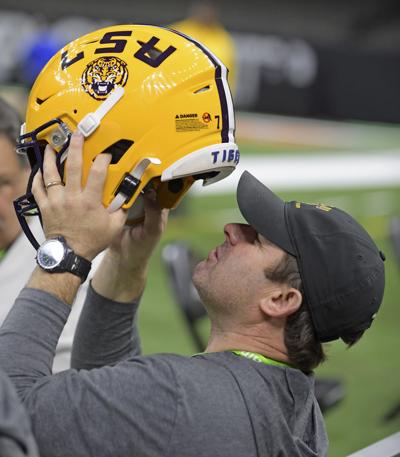LSU’s longtime athletic equipment manager and assistant athletic director is leaving to become the president of Elite Training Academy, an athletic performance facility in Baton Rouge.
Greg Stringfellow said Tuesday that he decided to leave LSU because he wanted to take on a new challenge. He worked at the school for more than 30 years, first as a student assistant, then as the football program’s equipment manager and finally as a senior administrator in charge of equipment and facilities for every LSU athletic program.
“I’ve been with LSU a long, long time,” Stringfellow said. “I turned 50 a couple of years ago. When you get to a certain age, and you reach a certain level of what you've done in your career, you always look and see what else potentially is out there.”
In 2022, Elite Training Academy partnered with Ochsner to build a $22 million, 65,000-square-foot facility near the intersection of Burbank and Lee drives. Stringfellow said the company offered him an ownership stake and recruited him to help finish building the facility and oversee its day-to-day operations once it opens.
The academy will offer athletes of all ages everything from speed and strength training to orthopedic medical care.
“It was a win for me and my family,” Stringfellow said. “It was something where I could be my own boss, create my own program, something I never thought I would ever think of doing, but they came to me with the idea, and I’ve run with it since then.”
Stringfellow took over as LSU football’s equipment manager in 2003. He worked in that role until LSU elevated him into an assistant athletic director job in 2019.
In 2018, Stringfellow oversaw the unveiling of the alternate uniforms LSU wore in a game against Mississippi State to commemorate its “Silent Season” of 1918, the year its football team didn’t play because of World War I. The uniform sets featured color-changing helmets, with paint that cost around $1,500 a gallon.
“I thought it was a good time to transition from LSU to here,” Stringfellow said. “I've kind of reached the pinnacle of my business and the equipment world at LSU. To try something new, I guess, is the best way to say it.”
Stringfellow is also the co-founder of Tigeraire, a Baton Rouge-based company that manufactures wearable cooling devices for football helmets and other apparel.


